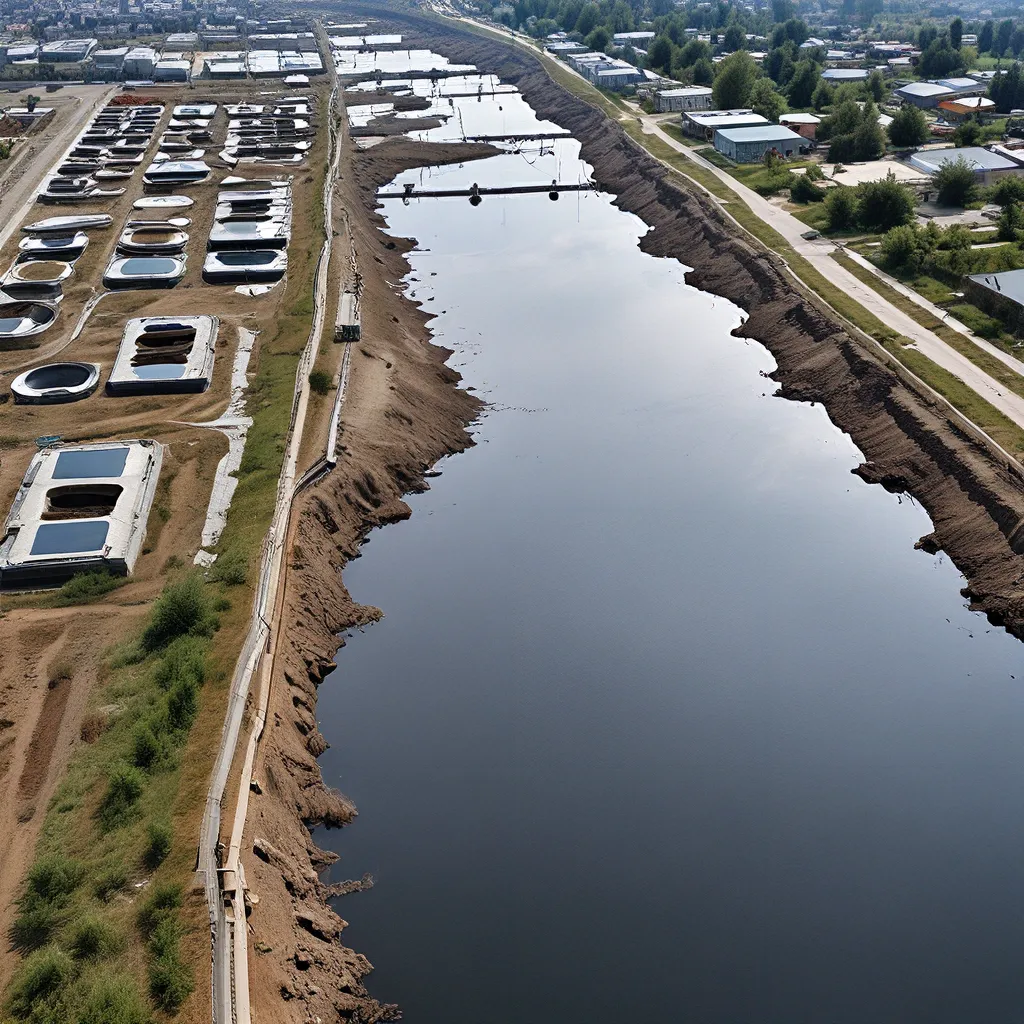
The Vital Role of Wastewater Management in Shaping Eco-Friendly Cities
As a sustainability enthusiast, I’ve always been fascinated by the interplay between urbanization and environmental stewardship. And when it comes to building a greener, more resilient future, one aspect that often flies under the radar is the humble yet essential realm of wastewater treatment.
Emerging research suggests that effective wastewater management is not just a technical challenge, but a critical component of sustainable urban development. By strategically integrating wastewater systems into city planning, we can unlock a wealth of benefits – from reducing pollution and conserving precious water resources to fostering a circular economy and enhancing community resilience.
Let me take you on a journey to explore this often-overlooked, yet vital, aspect of building a greener tomorrow. Strap in, because I have a feeling this is going to be an eye-opening ride!
The Water Cycle: A Delicate Dance
To truly appreciate the importance of wastewater treatment, we need to step back and understand the bigger picture – the water cycle. This continuous, natural process of water’s movement through the environment is the lifeblood of our planet, and it’s a dance we humans have a profound impact on.
When we introduce urban development into the equation, things get a bit more complicated. As cities grow, the natural water cycle is disrupted by the introduction of impermeable surfaces, like roads and buildings, which prevent water from naturally infiltrating the ground. Instead, this water is rapidly channeled into stormwater systems and wastewater treatment plants.
The United States government recognizes the crucial role of wastewater management in maintaining the delicate balance of the water cycle and ensuring the long-term sustainability of our urban environments. By implementing robust wastewater treatment systems, we can not only mitigate the environmental impact of urbanization but also unlock a wealth of opportunities for resource recovery and reuse.
Wastewater: A Treasure Trove of Potential
Conventional wisdom often sees wastewater as a problem to be dealt with, a byproduct of our modern lifestyle that needs to be swiftly removed and disposed of. But what if I told you that wastewater is actually a treasure trove of potential?
Wastewater treatment facilities are no longer just places where we clean and filter water before discharging it back into the environment. They’re evolving into resource recovery hubs, where we can extract valuable materials, generate renewable energy, and even produce recycled water for a variety of beneficial uses.
Think about it – wastewater contains nutrients like nitrogen and phosphorus, which can be recovered and used as fertilizers for agricultural purposes. It also harbors organic matter that can be converted into biogas to power treatment plants or even be fed into the grid. And of course, the water itself can be treated and reclaimed for irrigation, industrial processes, or even potable use, helping to alleviate water scarcity in water-stressed regions.
By embracing this circular economy approach to wastewater management, we’re not only reducing the environmental impact of our cities but also creating new economic opportunities and building a more resilient, sustainable future.
Wastewater and Urban Resilience
But the benefits of wastewater treatment go beyond just resource recovery and environmental protection. Effective wastewater management can also play a crucial role in enhancing the overall resilience of our urban areas.
As extreme weather events become more frequent and intense due to climate change, robust wastewater infrastructure can help cities withstand the impacts of flooding, storms, and droughts. By ensuring that wastewater systems can handle increased flows and prevent overflows, we can protect public health, safeguard critical infrastructure, and maintain essential services even in the face of environmental disruptions.
Moreover, the integration of green infrastructure and nature-based solutions into wastewater treatment can provide multiple co-benefits. These include flood mitigation, urban cooling, and habitat creation, all of which contribute to enhancing the overall resilience and livability of our cities.
Navigating the Complexities of Wastewater Management
Of course, the world of wastewater management is not without its challenges. As with any complex system, there are a myriad of technical, regulatory, and social factors that must be carefully navigated.
Technological advancements, such as the use of artificial intelligence, machine learning, and sensor networks, are revolutionizing the way we monitor, control, and optimize wastewater treatment processes. These innovative solutions are helping to improve efficiency, enhance process control, and reduce energy consumption, ultimately making our wastewater systems more sustainable and resilient.
However, the regulatory landscape surrounding wastewater management can be a labyrinth of ever-evolving guidelines, permits, and compliance requirements. Navigating these waters requires a deep understanding of local, state, and federal regulations, as well as the ability to effectively collaborate with policymakers and regulatory agencies.
And let’s not forget the social dimension of wastewater management. Engaging with diverse stakeholders, from community groups to industry partners, is essential for building consensus, addressing concerns, and ensuring that wastewater solutions align with the needs and priorities of the communities they serve.
The Future of Wastewater: A Sustainable Oasis
As we look to the future, the role of wastewater management in shaping sustainable urban development is only going to become more crucial. Innovative technologies, evolving regulations, and collaborative approaches will all play a vital role in unlocking the full potential of this often-overlooked aspect of the built environment.
I’m excited to see how the next generation of wastewater professionals will rise to the challenge, blending technical expertise, environmental stewardship, and community engagement to create a future where our cities are not just livable, but truly regenerative and resilient.
So, the next time you flush the toilet or turn on the tap, I encourage you to take a moment and ponder the complex, yet essential, world of wastewater treatment. It’s a realm that’s often hidden from view, but one that holds the keys to a more sustainable, circular, and livable urban future.